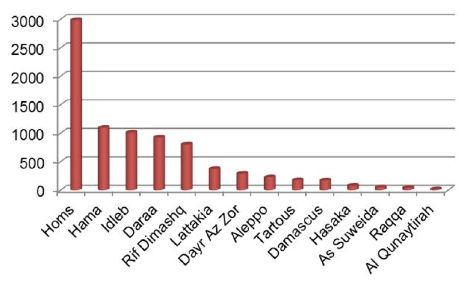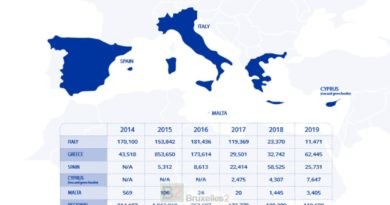Ashton “to the west”. Did London want to let go of the Baroness? Critical Paris
(BRUSSELS2) One could hope that after a few months - what am I saying, almost two and a half years of breaking in - the new High Representative, Catherine Ashton, would finally find her mark, her rhythm. Without hoping for significant audacity, enormous ambition, we could hope for a little more from Europe with the institutions of Lisbon than without. If, little by little, Herman Van Rompuy, the President of the European Council, charts his course, allowing the European Council to find its way; we have to recognize today that it is a real disappointment. In recent weeks, the High Representative was really "in the west" to use a popular expression (= to be next to the plate). And his latest (non) performances, most recently at the European Summit in early March, will not reverse this remark.
A bogged down balance sheet
Defense and security, absence and slowness
On the defense and security side, it's the bérezina: a quick visit to NATO, at the beginning of December just before dinner; the "brushing" of the Munich security conference; the "forgetting" of an informal defense council on the agenda for the semester (it will be because Cyprus offers to organize it that the High Representative will react).... As for possible future CSDP missions (in Libya , in the Horn of Africa, the Sahel), it's slow, very slow... They get bogged down in a “bureaucratic circuit” often incomprehensible to the layman and even to the specialist in these questions. In Libya, a mission of experts from Member States left to assist the Libyan government with border management; the status of this mission still seems unclear. In industrial matters, the Europeans arrived in a rather dispersed order in Chicago, at the NATO summit. And Washington sees the defense ministers of each member state parade one by one, trying, in isolation, to negotiate the best value for money for US deliveries. Ineffective! We have already said it, but it does not get any better, the High Representative has no appetite for defence. An old reflex of a militant from the Labor left, perhaps, allied to a solid ignorance of these subjects, and a belief that in any case NATO on the one hand, the United States are much more serious people to do these things...
A High Representative with staggered movements
On the foreign policy side, we saw a strange journey in Latin America, lasting several days, where the only strategic crucial question could be ... the Falklands and the need to balance a series of trips to the Middle East or Asia. And, just recently, this trip for 3 good days in the Nordic countries. “A wonderful trip” as the interested party explained during her stopover in Sweden. Africa is neglected, apart from the Maghreb and South Africa. Black Africa is left to the commissioners specializing in development, A. Piebalgs, or humanitarian aid, K. Georgieva. Remember the first word of the High Representative when we spoke to her about the Sahel "What? Sahel?". On the side of "strategic partnerships", it is often the two presidents, Herman Van Rompuy (European Council) and José-Manuel Barroso (European Commission, who are most often at the helm, as during the Russia summit in December. And, Generally speaking, the High Representative is often excluded from high-level meetings, the President of the European Council having contacts with Heads of State and Government, while the High Representative remains confined to meetings with ministers. And a serious difficulty when it comes to negotiating certain very political agreements.
The French heel
On the French side, we are relatively exasperated by the slow progress. And Minister Alain Juppé took up his finest pen a few days ago to (again) send a letter to the High Representative to ask her for stronger progress on the European External Action Service. Among his remarks - as explained by my colleagues from AFP - there is the will to have a more dynamic action in the field of Human Rights, in particular by supporting the oppositions in a more sustained way, in particular in the Arab world. Under cover of improvements requested on the diplomatic service, it is a vigorous criticism (even if the Minister refutes this term) of the very action of the High Representative. In terms of defence, the Minister is therefore asking the EU to present a joint proposal to strengthen its capabilities in the field of tanker aircraft in view of the NATO summit in May in Chicago.
Epiphenomena or more serious symptom?
These absences and wanderings could be only epiphenomena. They are in fact only the translation of the absence of inorganization, of power of work, of strategic aim of the High Representative who is still not present in Brussels 7 days a week but 7 days (at best... ). She still does not reside in the European capital (as required by the statute) since she chose to leave her family in London. This is normally contrary to the statute of the European civil service which obliges to reside within a radius of a few tens of km from its point of assignment. Imagine an ambassador who would return home every weekend. These shortcomings are not just the vision of a few observers; they appeared clearly to a number of European chancelleries and even third countries (which is even more serious). In general, when you question a diplomat or a minister, the comment of polite support quickly gives way to an awkward silence, even to a few well-felt words; the passage time from the first to the third stage being very short, of the order of a few nanoseconds. In short, it's Lady Nobody (Lady Mediocrity in the language of Molière) as one of my contacts told me.
The British cleaver for Lady Nobody
Even in London, the feeling of not being automatically well represented is now prevalent. And the possibility of finding a better representative in Brussels has been seriously considered, according to our information, even if it is now shelved. It's not really that the "Number 10" wants a high ambition for European diplomacy. It is above all that the weakening of C. Ashton also means the weakening of the position of the Crown in the Commission. An idea that became clear to British leaders when the December summit rout left the United Kingdom on the sidelines. What struck people then was not so much the refusal to sign the treaty, which could very well be justified in the eyes of traditional British policy, as the almost total and brutal isolation of Great Britain. Something not seen for many years. The British press then had a blast. The libdem-tory coalition was heckled, but it held up (against all predictions, by the way).
A change to another position
The renewal of Herman Van Rompuy then offered a window of "shooting". Because if change the British wanted, it was not "post for post". They fully intended to let go of the EU's chief diplomacy for another post, far more important in their eyes, with an economic resonance (internal market, competition...). Which required if not a reorganization, at least, a swift between several positions. But Michel Barnier, despite all the interest he found in foreign policy and defense - he makes no secret of this during informal or official discussions - also has a mandate to fulfill at the post of Internal Market and Services financial. A hard-won post that in Paris, we do not want to exchange for another.
Lack opportunity
As a senior French government official put it recently: We put the British in diplomacy, so we had a clear field for the position we want (internal market and financial services)”. And he is there is no question today of going back on that”, in short, to release the prey for the shade. This, even if the work, like the person, of the European chief diplomat is considered very mediocre by French officials, Left Bank as well as Right Bank elsewhere. The Head of State, Nicolas Sarkozy, during his last press conference did not quote him at any time when he praised the work of H. Van Rompuy and quoted him and Barroso on several occasions ( five times for the first, three times for the second... I counted). An oversight that owes nothing to chance... As for the other positions that could have changed - thanks to a change of government - A. Tajani (Commissioner in charge of Industry), too close to Berlusconi, was more or less less grilled in a Monti government. And J. Almunia (Commissioner in charge of Competition) clearly explained that he did not hear moving from his chair.
A position under surveillance
For lack of anything better, the British have therefore swallowed their ambition and left Lady Ashton to go about her business in Brussels. At least for the moment. She remains under surveillance and under pressure (with the arrival as permanent representative in Brussels of someone very close to David Cameron). And if an opportunity arises, if a reorganization is felt within the Commission for one reason or another, this file could well come back into the news. These delays did not go unnoticed. The article from the Blog "Charlemagne" The Economist, published at the beginning of February, gave the la the intensity of the release. Entitled The Berlusconi option for Lady Ashton?, he charges "sword in the clear", with unexpected violence for the daily economist, but also with disturbing accuracy.


